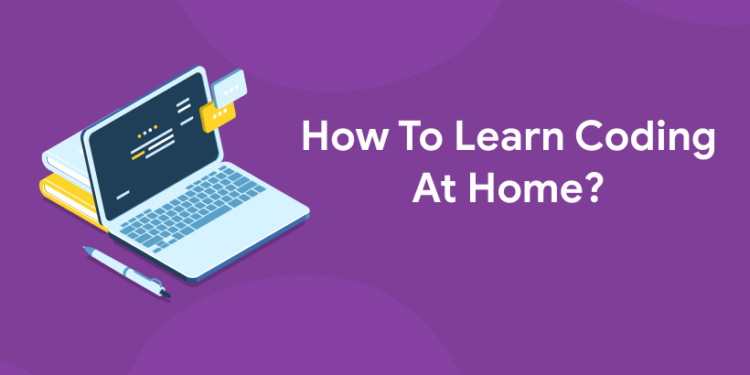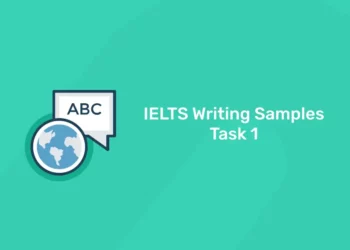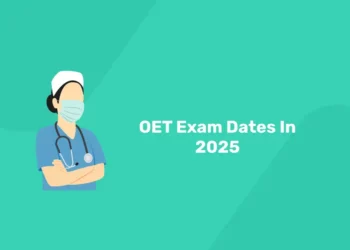Table of Contents
Learning to code at home might sound impossible at first. You might think you don’t have enough time, or maybe you are intimidated by learning to code? If this sounds like you, we are here to help! we used to think the same thing until we started working on projects and decided that we needed to learn coding to make them better. After some research and work, we can say with confidence that it is possible! And it doesn’t have to be difficult either! Let me share with you 10 ways to learn coding at home!
1) Go Through Some Basic Tutorials
When you first begin learning how to code, it’s essential that you familiarize yourself with some of its fundamental building blocks. Tutorials are a great way to start because they walk you through every step and ensure that you understand what’s happening at each step. An amazing free resource for web development is W3Schools. Its tutorials will get your feet wet with HTML, CSS, JavaScript, jQuery, and PHP — all important languages in any web developer’s toolkit.
2) Use StackOverflow When Stuck
1: Which of the following data structures allows elements to be added and removed in a Last-In, First-Out (LIFO) order?
Stack Overflow is a question-and-answer website for programmers. You can ask questions, or help answer other people’s. This is your go-to resource when you are stuck and need some answers fast. It was created by Joel Spolsky (from Fog Creek Software) and Jeff Atwood, two highly respected members of our industry. In fact, their opinions on programming language design and development practices carry so much weight that it is almost sacrilegious to not listen. The site has been around since 2008 but has only recently exploded in popularity as more and more developers have started using it. If you haven’t already registered an account on StackOverflow, do so now. Don’t worry about being a noob – everyone was once a noob! Just jump right in there with any questions you might have regarding programming concepts that don’t make sense or how to solve problems with code.
Learn Coding in your Language! Enroll Here!
3) Experiment And Have Fun With Code
The easiest way to build a solid programming foundation is by getting your hands dirty. Take some time out of your day, go through a simple tutorial or two, and experiment with code. Your goal here should be to have fun — that’s what made you interested in programming in the first place! You don’t have any real-world assignments or exams, so there’s no pressure on you; just have fun working through lessons and building something you want to build. This will not only help make learning more exciting but it’ll also give you an opportunity to really immerse yourself in code and ask tons of questions that would otherwise go unanswered if you were learning from books or videos.
4) Work On Some Real-Life Projects
Because developers often build applications for both personal and professional use, they have a wealth of knowledge on topics like project management, teamwork, usability, and design that they can share with new learners. Taking time to work on some simple projects will help you appreciate what it takes to make an application functional. After all, if you don’t know how something works, it’s hard to fix or improve it. Start off small by helping a friend code up his resume or developing a website for your non-profit. You’ll see firsthand what software development is really about and gain insight into some real problems people face every day when using technology. With any luck, after some hands-on experience under your belt, you might even discover a new problem worth solving yourself!
5) Read Blogs On a Regular Basis
There are plenty of good tutorials out there for coding in various languages, but reading a daily dose of these blogs will ensure that you stay on top of new trends. From interviews with developers who work for or with some of your favorite companies (like Amazon and Google) to tips on debugging your code, there’s no shortage of good stuff online. The best news? You can read them from anywhere—at home, in line at Starbucks, etc.—so no excuses. Just do it! Adopt an open-source project: Open-source projects are basically like public domain projects, which means anyone can use their source code and build upon it as they see fit. One great way to get involved is by adopting an open-source project that interests you and then submitting changes/fixes/etc., which could land you a spot as a contributor on GitHub. This is also a great way to network with other coders who may be able to offer feedback on your own projects down the road.
Enroll in our certificate program in Full Stack Web Development!
6) Solve Any Interview Questions You Come Across
Practice makes perfect! Every developer interview is essentially a take-home exam. If you don’t get it right away, keep practicing and understanding questions until you do. This will help build your confidence level when you go into an interview. You should strive to solve most of your interview questions correctly on your first attempt and impress your interviewer with your skill level. A little practice also goes a long way in helping you understand technical topics that come up during interviews so you can communicate clearly and effectively with other developers on projects. Check out our HackerRank Open Practice Network for over 35,000 developer interviews where anyone can practice coding problems (with solutions!) from companies like Facebook, Microsoft, Google, Amazon, and more.
7) Keep Trying Till You Get It Right
Learning how to code doesn’t come easy and can be discouraging. If you find yourself frustrated that you don’t understand a lesson, switch gears and do something else for a while. When you feel like returning, try again—you may pick up on what was puzzling before in a new way. With determination, hard work, and flexibility, you can succeed! The most important thing is to keep trying.
8) Learn From The Mistakes Others Made
It’s easy to get overwhelmed when thinking about learning how to code, but if you’re just starting out, you don’t need to make any big decisions right now. Take a look at our list of languages and pick one that piques your interest. Then focus on becoming an expert in that specific language by searching for beginner guides and tutorials. You can even get started with free, interactive courses like Coursera or Codeacademy.
9) Get Started Early In Life
Anyone can learn how to code. But it’s much easier if you start early, while your brain is still developing. Even just a few hours a week of focused learning will pay off in the long run. Many online resources are available for beginners, and they’re usually free or very cheap. Get a computer science degree: Some college courses (especially community colleges) are cheap or even free. They’re also relatively easy to take online, particularly if you already have an associate’s degree. If you need more time for self-study before school begins, consider taking some programming classes at a local vocational school or library as well.
10) Choose What You Want To Learn
Although it’s true that you can teach yourself just about anything with a few simple resources, it’s also easy to become overwhelmed or confused if you don’t have a clear starting point. If you know what you’re looking for, finding it becomes much easier. Just learning how to program isn’t enough—you’ll have better luck learning a specific language and what problem it will solve for your business (and, eventually, customers). So where do you start? If a particular programming language looks like something you might use in your business (or even just want to be able to understand), there are several great courses online that can get you started. Sites like Code Academy or Treehouse offer free, comprehensive coding lessons from basic JavaScript up through more complex languages like Ruby on Rails. If you are interested to learn new coding skills, the Entri app will help you to acquire them very easily. Entri app is following a structural study plan so that the students can learn very easily. If you don’t have a coding background, it won’t be any problem. You can download the Entri app from the google play store and enroll in your favorite course.
Enroll in our certificate program in Full Stack Web Development!











